 One of the first provisions that a car owner should make is to read the car manual for the vehicle they own. This is critical. The vehicle manual will usually have a 30-60-90 schedule. This schedule is predicated on when certain items in the car need to be inspected, changed, or replaced at 30,000, 60,000, and 90,000 miles. While it is true that some parts of the vehicle, such as rubber gaskets, hoses, windshield wipers, and tires will wear out at irregular intervals, the 30-60-90 schedule is straightforward for the indicated items on your vehicle.
One of the first provisions that a car owner should make is to read the car manual for the vehicle they own. This is critical. The vehicle manual will usually have a 30-60-90 schedule. This schedule is predicated on when certain items in the car need to be inspected, changed, or replaced at 30,000, 60,000, and 90,000 miles. While it is true that some parts of the vehicle, such as rubber gaskets, hoses, windshield wipers, and tires will wear out at irregular intervals, the 30-60-90 schedule is straightforward for the indicated items on your vehicle.
What is Included in Car Maintenance?
Not only is car maintenance the single most important way to lengthen the life of a car, but it can also save serious money on car repair. Car maintenance includes changing the oil, rotating the tires, checking the fluids, and more. Timing and serpentine belts are often overlooked by car owners, however, these belts need to be replaced periodically. Most mechanics agree that timing belts should be replaced every 60,000 miles or so. The owner’s manual will offer the manufacturers instructions for each component of the vehicle, taking the guesswork out of the equation.
How Do You Do Basic Maintenance on a Car?
The maintenance schedule section, located in the owner’s manual, has the basic intervals for critical engine components. Two of these components are the oil, and the oil filter. Oil is your engine’s lifeblood. When it comes time to change the oil, make sure you make an appropriate selection between synthetic and conventional oil, determined by your budget needs, and the needs of the vehicle. Next, make sure to check your tires monthly. Tires need to be properly inflated in order to perform well. Using a bicycle tire to inflate them is an excellent pro-tip.
How Do You Maintain a Car Engine?
In order for your car to perform at it’s best every time it hits the road, inspections are necessary. Through proper maintenance, future repair costs become limited and car performance is optimized. Regularly refreshing the oil in your vehicle, according to the parameters of the owner’s manual, will keep your engine in great shape. For car owners who tow a trailer or often drive in dusty conditions, your oil should be changed more frequently, and you should absolutely consider switching to the premium type of oil, synthetic. Other considerations include checking the PCV valve for proper operation and checking the spark plugs and the spark plug wires.
What Happens When a Car Hits 100k Miles?
After a car has passed one hundred thousand miles, it’s essential to routinely groom the car for any possible hiccups. Please read over the following list for essential maintenance tips:
- Fluids. The oil, transmission fluid, coolant, power steering fluid, and brake fluid all should be completely replaced after the one-hundred-thousand-mile mark.
- Belts. The serpentine belt in your car is made of a special type of rubber that is streamlined to work within a hot engine compartment. However, no one component is built to last forever. Ask your mechanic to look into signs of cracks, missing ribbing, marring, striping or general brittleness.
- Water pump and timing belt. Other than the oil, the timing belt is possibly the most important item that needs to be replaced at the 100,000-mile mark. This is because the damage caused by a broken timing belt on engines can be extravagantly expensive.
- Tires and brakes. Check your tire’s inflation level and tread depth. Any signs of uneven wear, cracking, and bulging should be addressed promptly.
Where to Get Car Maintenance
If you have noticed a slow engine crank or a low battery fluid level, it may be time to get a car battery replacement. For a car battery replacement and car maintenance, vehicle owners should find a reliable car mechanic or repair shop. Ask trusted friends where they get their vehicle serviced, and whether they would highly recommend those services. Another avenue for car owners is finding a local shop with excellent reviews. Because your vehicle is important, it will be critical to find a mechanic who has in-depth knowledge and respect for automobiles and will be able to translate that into good repairs.
Car Maintenance to Do Yourself
There are a number of things that car owners can do to improve the maintenance of their vehicle without going to the mechanic. One of the items that top the list is replacing the air filter. Car owners need a new air filter approximately once every year or twelve months. Air filters cost about ten dollars and don’t take a lot of time to install. Windshield wipers are another car maintenance item that can be replaced with relative ease. Windshield wiper blades should be replaced once every six months, and only cost about ten to twenty dollars. One of the reasons why windshield wipers are so important to manage is because old wipers can leave messy streaks on the windshield, which can lead to low visibility.
Car Maintenance vs Repair
There’s an appropriate and realistic difference between car maintenance and repair. With enough preventative car maintenance, car owners can expect a long car life with very few incidents or need for repairs. With enough knowledge and care, cars have been known to last well beyond the 100k mark. Car repairs are necessary when accidents happen and can be very expensive. It is important to note that excellent car maintenance can help relieve and even eliminate car repair, but that it is not entirely foolproof, as there are accidents that happen on the road.
Car Maintenance by Mileage
A routine car maintenance schedule is optimally based on engine mileage. While not all cars will need the same thing at the same time (see the owner’s manual), a good rule of thumb would be to follow certain parameters. Better safe than sorry, as the adage goes. Every 3,000 to 7,000 miles, the oil and oil filter should be replaced. Every 15,000 to 30,000 miles the air filter should be changed. For every 20,000 miles, the battery and coolant should be inspected. Every 30,000 miles, replace the power-steering fluid. As always, consult the owner’s manual of your vehicle to make sure that you’re on track for car maintenance success.
Do you have car maintenance on your agenda? Our friendly staff at Carotech Automotive and Tires are ready to take your phone call at (424) 283-4303. In Los Angeles, CA car maintenance is critical. Consult our experts to receive the best car advice.

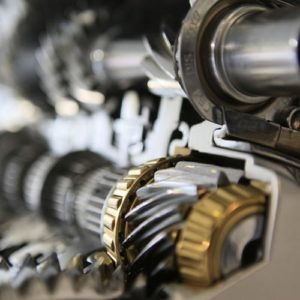 Some car problems are simple to diagnose. Whether you take your vehicle in Los Angeles, Ca or a Lombard, IL auto AC service, it’s easy to say “There’s no cool air coming out of the vents. Something’s wrong with the AC.” However, a failing transmission can have many potential symptoms, some of them fairly difficult to identify. If you aren’t careful, you could find yourself stuck out on the highway in dire need of transmission repair!
Some car problems are simple to diagnose. Whether you take your vehicle in Los Angeles, Ca or a Lombard, IL auto AC service, it’s easy to say “There’s no cool air coming out of the vents. Something’s wrong with the AC.” However, a failing transmission can have many potential symptoms, some of them fairly difficult to identify. If you aren’t careful, you could find yourself stuck out on the highway in dire need of transmission repair!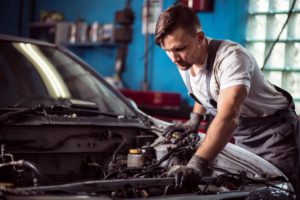
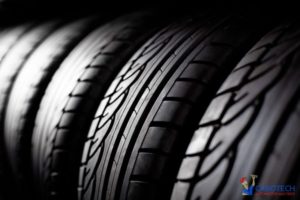 When buying new tires for your vehicle, there will be a lot of options. If you are not familiar with different types of tires, this can seem pretty overwhelming. If you know a few things about the types of car you drive and what you want out of your tire, choosing them won’t be as difficult. For example, if you take touring tires vs performance tires, you will see that touring tires are rated for all season. That means that they can be driven during any type of weather and are good on your vehicle all year round. This is a great option for the people that live in climates that get very cold, but also want to drive regular tires during the rest of the year. This way you don’t have to worry about changing your tires out through the different seasons and you will still remain safe. Performance tires are typically for people that drive sports cars and want to be able to increase their handling capabilities and have different traction when driving in areas that are wet or dry. These tires are usually thinner so that there is more grip to the road which will allow the driver to make sharper turns and even take off faster. The different tire types explained here are just a few of the money different options that you can choose from. If you just need a tire that will get you by, you can always go the cheaper route. The problem with this is that it will not last as long and it will not grip the road the same way that other types of tires will.
When buying new tires for your vehicle, there will be a lot of options. If you are not familiar with different types of tires, this can seem pretty overwhelming. If you know a few things about the types of car you drive and what you want out of your tire, choosing them won’t be as difficult. For example, if you take touring tires vs performance tires, you will see that touring tires are rated for all season. That means that they can be driven during any type of weather and are good on your vehicle all year round. This is a great option for the people that live in climates that get very cold, but also want to drive regular tires during the rest of the year. This way you don’t have to worry about changing your tires out through the different seasons and you will still remain safe. Performance tires are typically for people that drive sports cars and want to be able to increase their handling capabilities and have different traction when driving in areas that are wet or dry. These tires are usually thinner so that there is more grip to the road which will allow the driver to make sharper turns and even take off faster. The different tire types explained here are just a few of the money different options that you can choose from. If you just need a tire that will get you by, you can always go the cheaper route. The problem with this is that it will not last as long and it will not grip the road the same way that other types of tires will.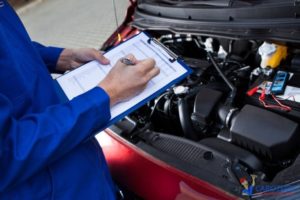 Taking care of your vehicle is something that you will need to do in order for it to continue to run properly. There is nothing worse than having car troubles when you need to be somewhere…like work. There are many things that you can do at home to take care of your car, but if you want to have someone else do it, you can always take it into a car shop and have mechanics look at it to be sure. It doesn’t matter if you need exhaust maintenance in New Jersey or an oil change in LA, car maintenance is so important to keep up with. With so many resources to use, you can look up your tires normal psi online or check your oil using the dipstick to make sure that those things are always looking good.
Taking care of your vehicle is something that you will need to do in order for it to continue to run properly. There is nothing worse than having car troubles when you need to be somewhere…like work. There are many things that you can do at home to take care of your car, but if you want to have someone else do it, you can always take it into a car shop and have mechanics look at it to be sure. It doesn’t matter if you need exhaust maintenance in New Jersey or an oil change in LA, car maintenance is so important to keep up with. With so many resources to use, you can look up your tires normal psi online or check your oil using the dipstick to make sure that those things are always looking good.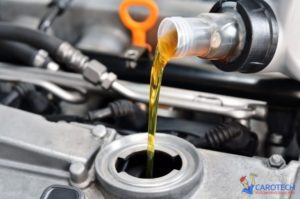 Taking care of your car is the key to making sure it runs for as long as possible. There are many things that you can do to keep your car in tip-top shape, but actually doing them is the key. Car problems can be expensive but, If you avoid taking care of your car you will end up with a check engine light and likely a high maintenance bill. That is why it is important to do things like changing your tires, get your oil changed and do any kind of car maintenance in Los Angeles, Ca that you need to do. If you think about it, it is cheaper to do the things you need to to keep your car working correctly, than to have to buy a whole new car. Getting your car’s oil changed is probably one of the most important things you can do for your vehicle. Below, we list a few reasons why.
Taking care of your car is the key to making sure it runs for as long as possible. There are many things that you can do to keep your car in tip-top shape, but actually doing them is the key. Car problems can be expensive but, If you avoid taking care of your car you will end up with a check engine light and likely a high maintenance bill. That is why it is important to do things like changing your tires, get your oil changed and do any kind of car maintenance in Los Angeles, Ca that you need to do. If you think about it, it is cheaper to do the things you need to to keep your car working correctly, than to have to buy a whole new car. Getting your car’s oil changed is probably one of the most important things you can do for your vehicle. Below, we list a few reasons why.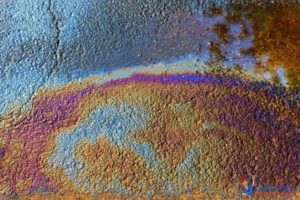 Every car contains a variety of fluids that accomplish special tasks to allow the vehicle to operate. When you notice your car leaking, you likely wonder whether to feel worried, take the car in for service, or simply ignore the issue. If you know how to identify car fluids on your own, you can save money on repairs and rest assured about your vehicle’s condition.
Every car contains a variety of fluids that accomplish special tasks to allow the vehicle to operate. When you notice your car leaking, you likely wonder whether to feel worried, take the car in for service, or simply ignore the issue. If you know how to identify car fluids on your own, you can save money on repairs and rest assured about your vehicle’s condition.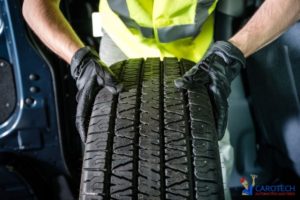 Knowing when to replace old tires can be difference between a comfortable tire change at home and an emergency on the side of the road. Thankfully, you can figure out for yourself when it’s time to spring for a new tire. Here are three simple tips to help you know when the time has come.
Knowing when to replace old tires can be difference between a comfortable tire change at home and an emergency on the side of the road. Thankfully, you can figure out for yourself when it’s time to spring for a new tire. Here are three simple tips to help you know when the time has come. 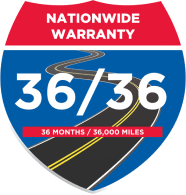
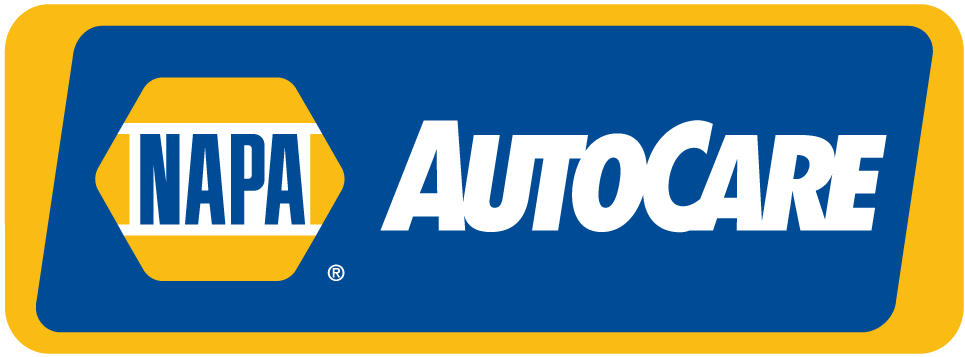


Recent Comments